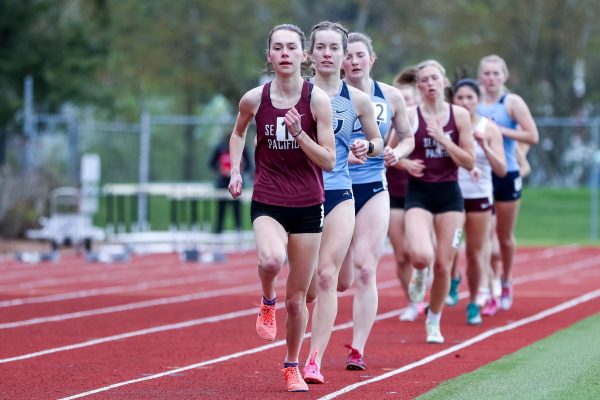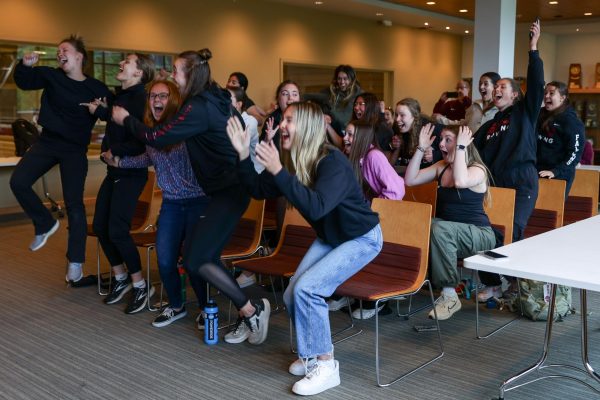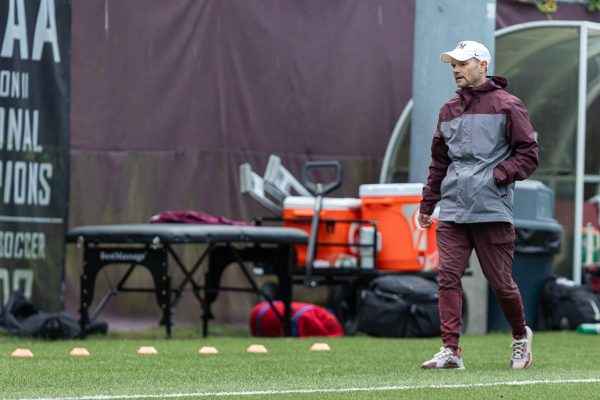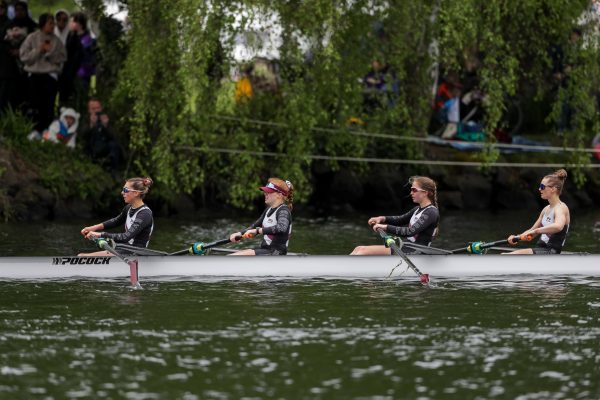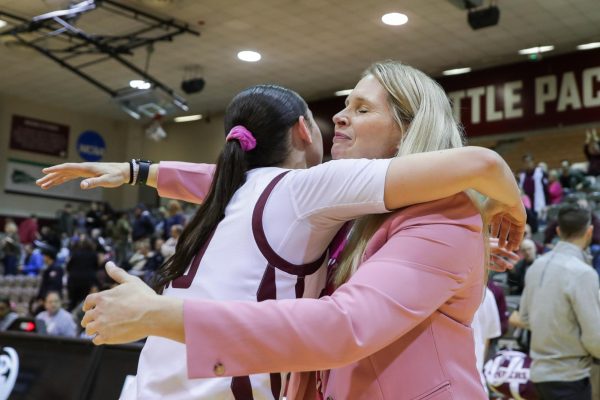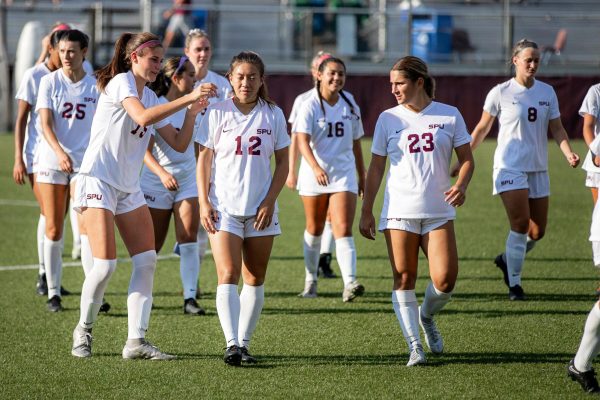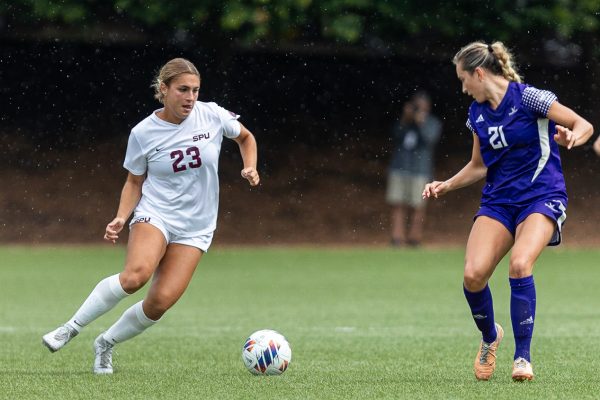Fall sports prepare to play in Spring
Men’s and Women’s soccer, Volleyball take on shorter season
February 23, 2021

Seattle Pacific University men’s soccer player Titus Grant is used to scoring goals in the Fall, but due to COVID 19, he will now have to score in the Spring. All sports that normally compete in the fall will now compete in a shorter spring season.
“It has been an odd year in all aspects of life, not just soccer. I am grateful to be playing soccer again. It will be different, but I think there may be some perks to playing games this Spring as the weather is usually nice in Seattle around this time of the year,” said Grant, who is a senior forward.
It could be challenging to train once again after a long break and not being on the field. If the team is not physically together, it is more difficult to develop bonds with teammates.
“One major thing that I personally had to do to prepare for this season was to stay diligent and motivated during winter break. This was a longer break than usual, and it can be so easy to get out of shape,” said Grant. “Another step was to make sure we as a team could build as much chemistry as possible with the limited numbers we had.
Playing in a different season this year has had a significant impact on the women’s soccer team.
“We won’t have a Conference season or a National Tournament to play in this year. We are in a challenging part of the country, with our conference being spread out across many states, all with different restrictions,” said SPU women’s soccer head coach Arby Busey. “The GNAC made the decision very early on and decided that they would not provide us with a schedule. Which has allowed us to go out, on our own, and try to find some games against opponents we wouldn’t normally play.”
COVID precautions for athletes’ and coaches’ safety are strongly enforced in a new season.
“Trying to keep everyone healthy has been the biggest focus for all of us, and taking the necessary steps to ensure that our environment is a good one. Masks, temperature checks, hand sanitizer, etc., all have become part of our routine now.” said Busey.
Practice is now taken at different speed than previously in the past seasons.
“I think coming back in January and beginning to practice with our full team together, we took it slower than we have in the past. We wanted to have a more gradual process for the players in preparing for games. With so much time off and away from a competitive practice environment, we wanted to help get them acclimated,” said Busey.
Now that the teams have games on the schedule, the players appear more motivated, according to men’s soccer head coach Mark Collings.
“To have that game at the end of the week or the middle of the week for the players to look forward to gives an extra bit of incentive in training because they know they are preparing for something,” said Collings.
Having a season in the spring is something coach Collings would prefer, as there are challenges to playing in the fall.
“I would prefer if our championship season were in the spring because our guys typically come back to campus around August 10th, which makes it difficult for internships and jobs with a shorter summer break,” said Collings. “If they move our championship segment to the spring, that will allow them a full summer, because now we could come back to campus at a normal time.
Due to the substantial changes, both athletes and coaches have discovered opportunities to improve their hard work and maintain a positive perspective while playing in a different season this year.





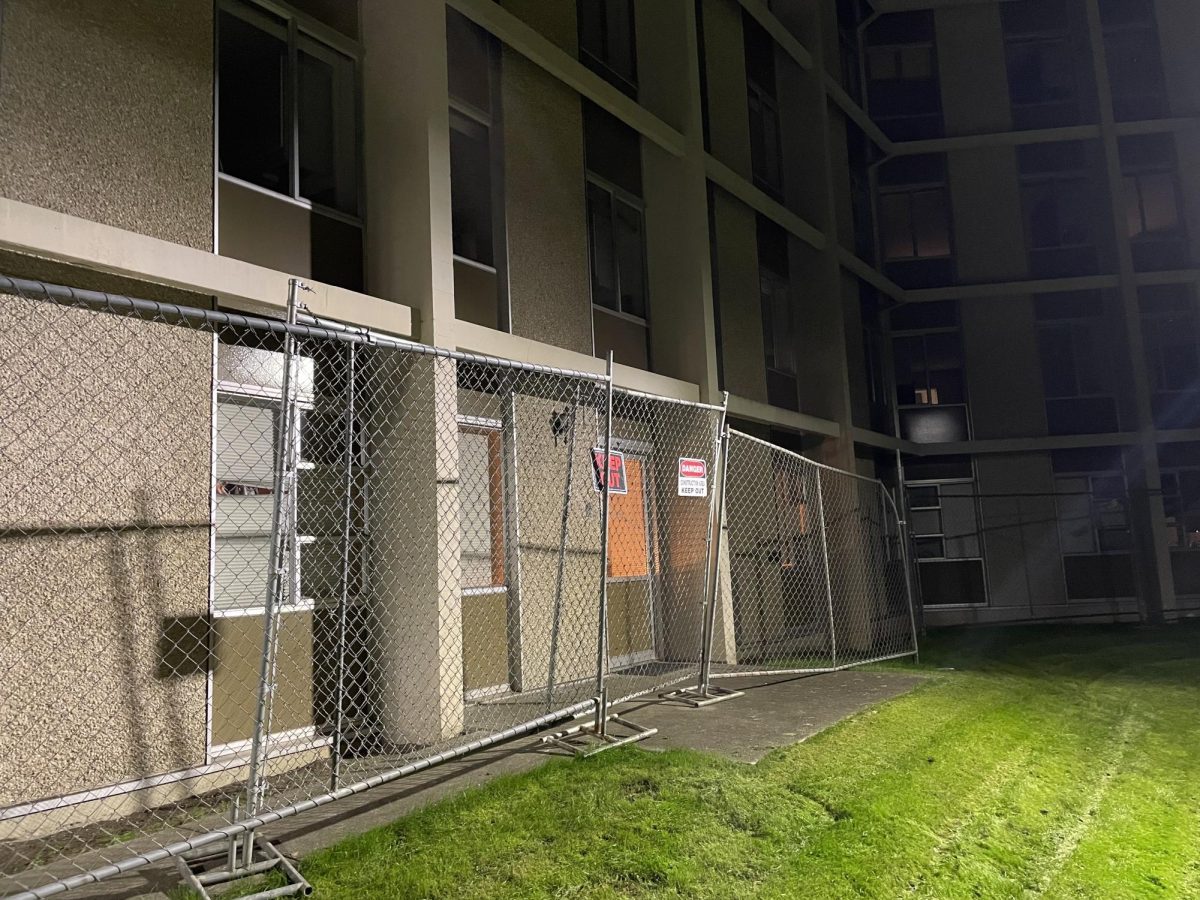










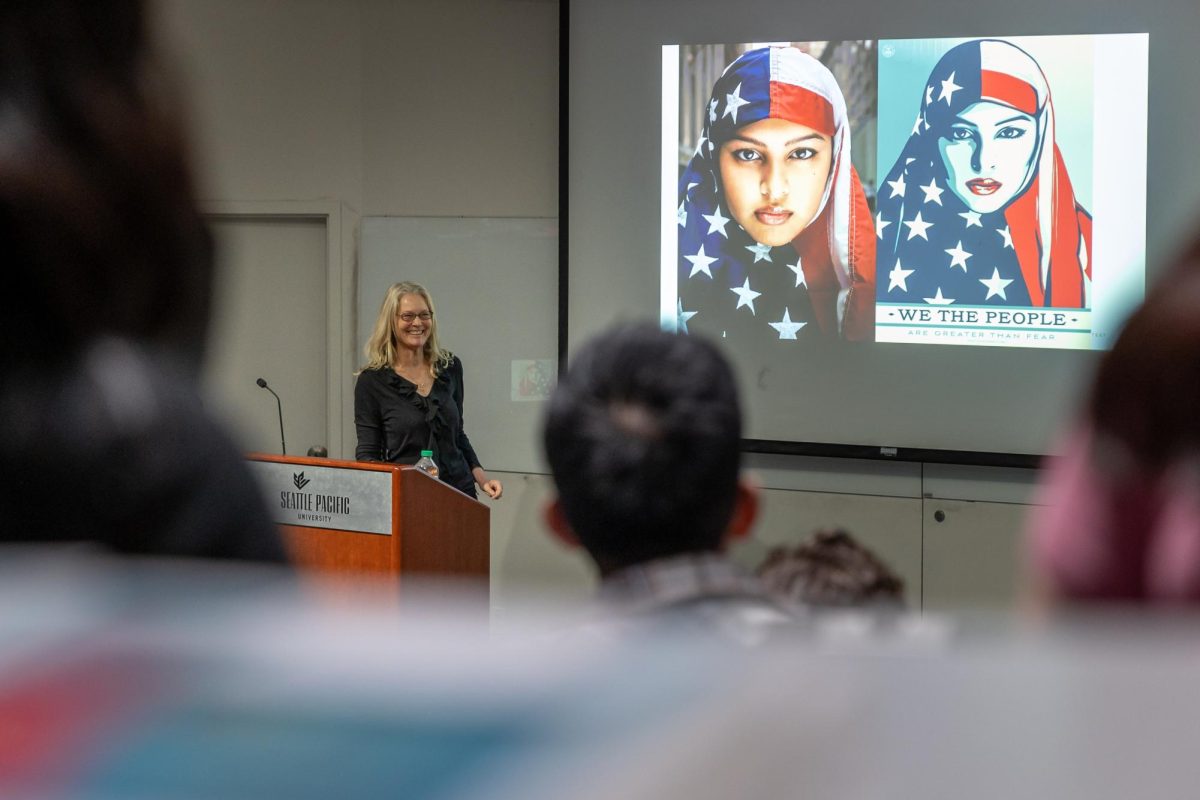


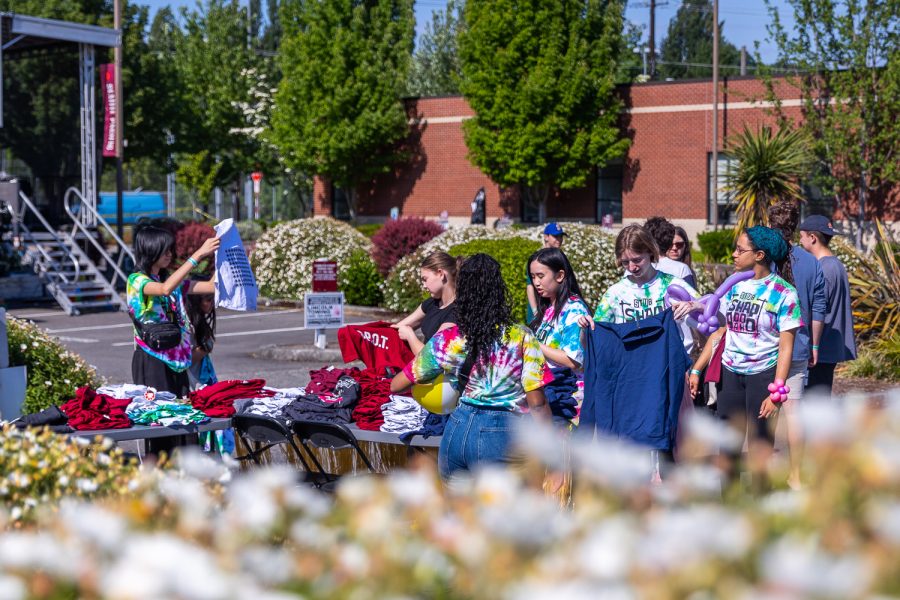
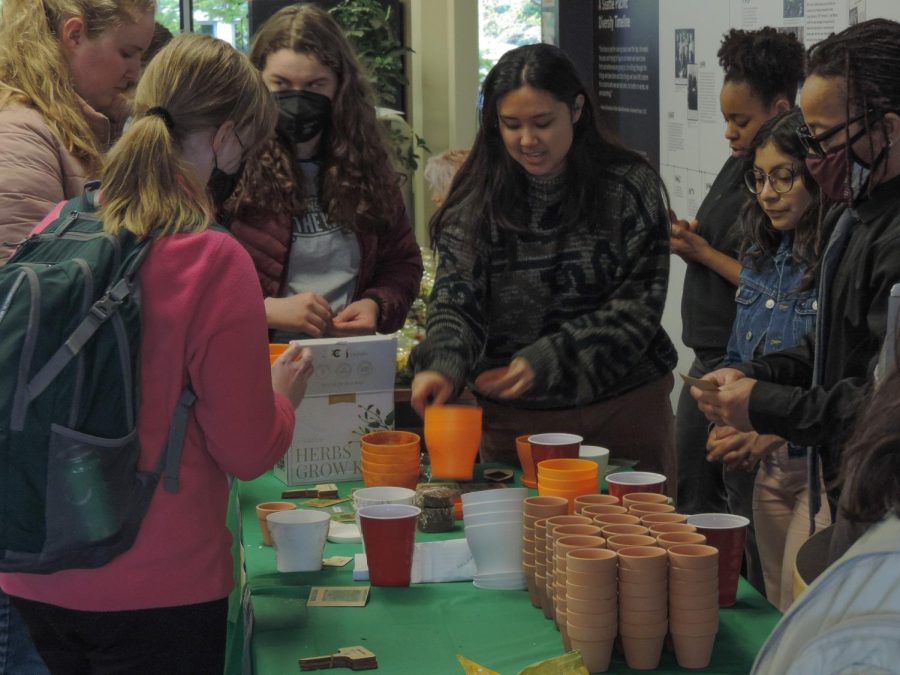

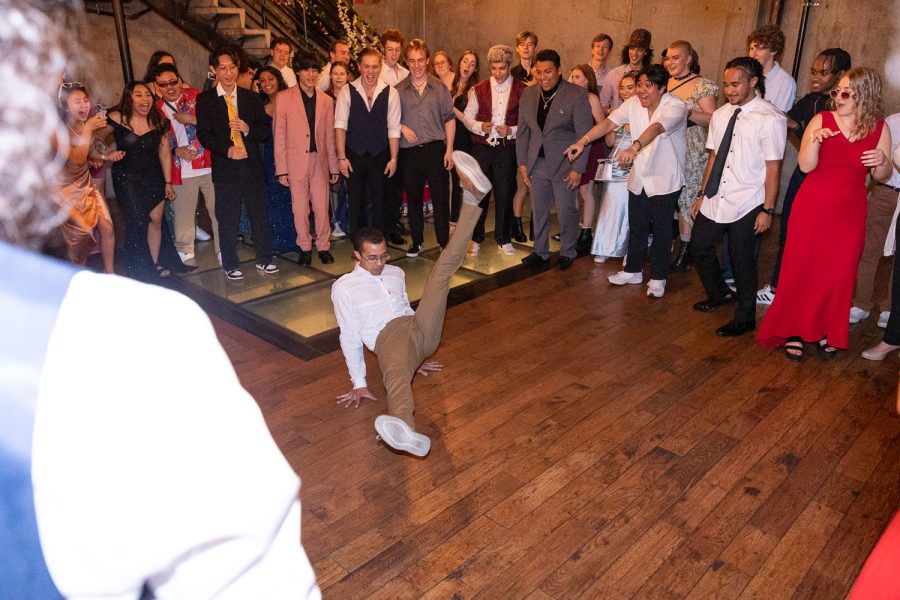











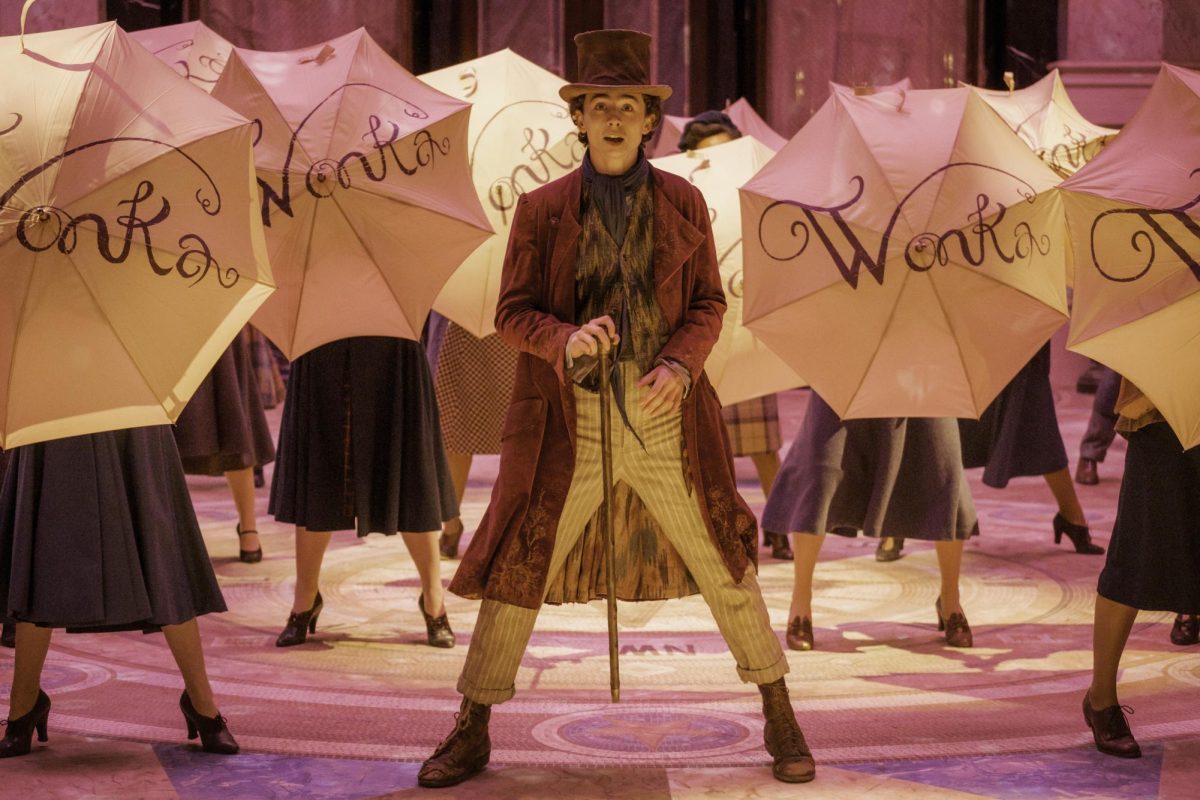




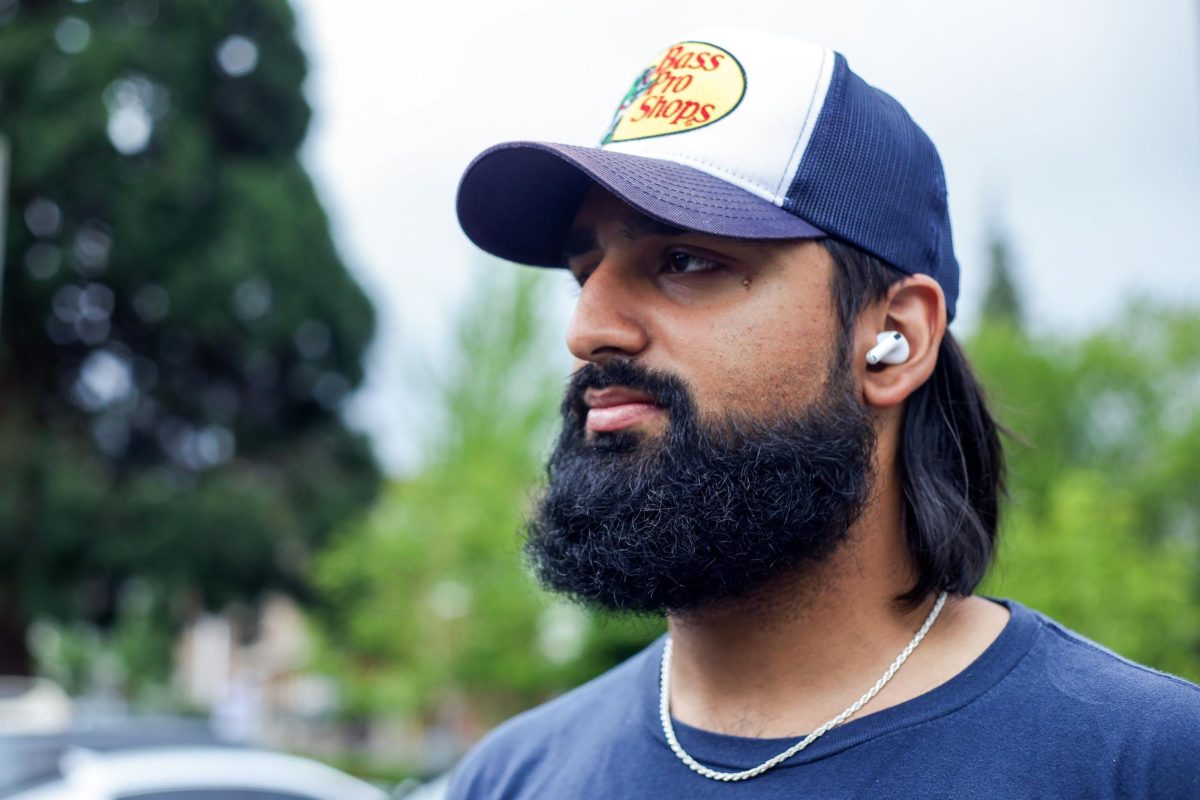
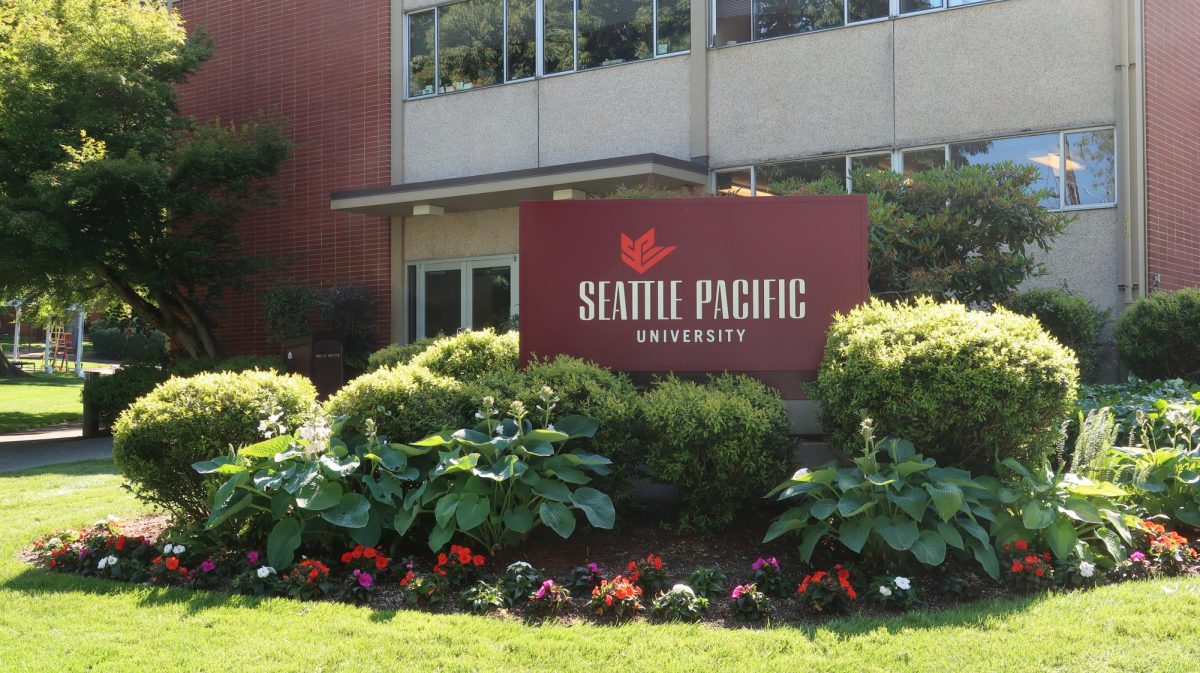


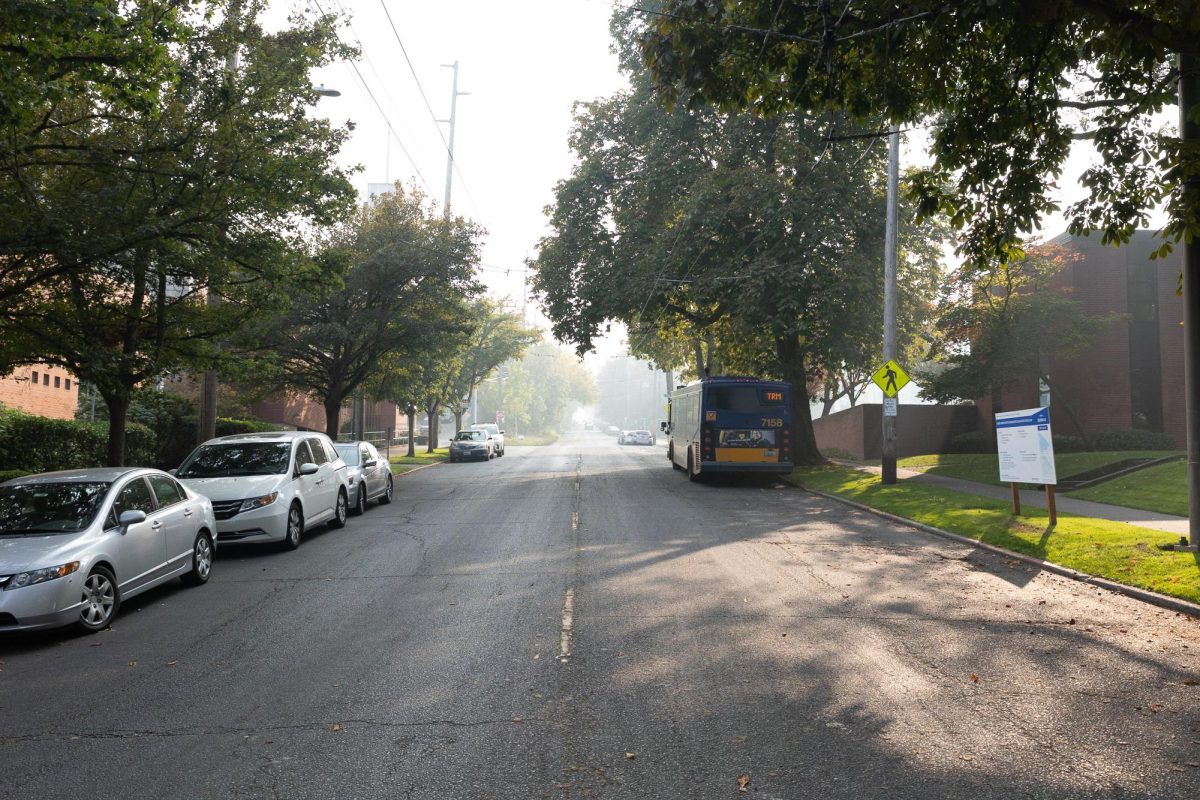

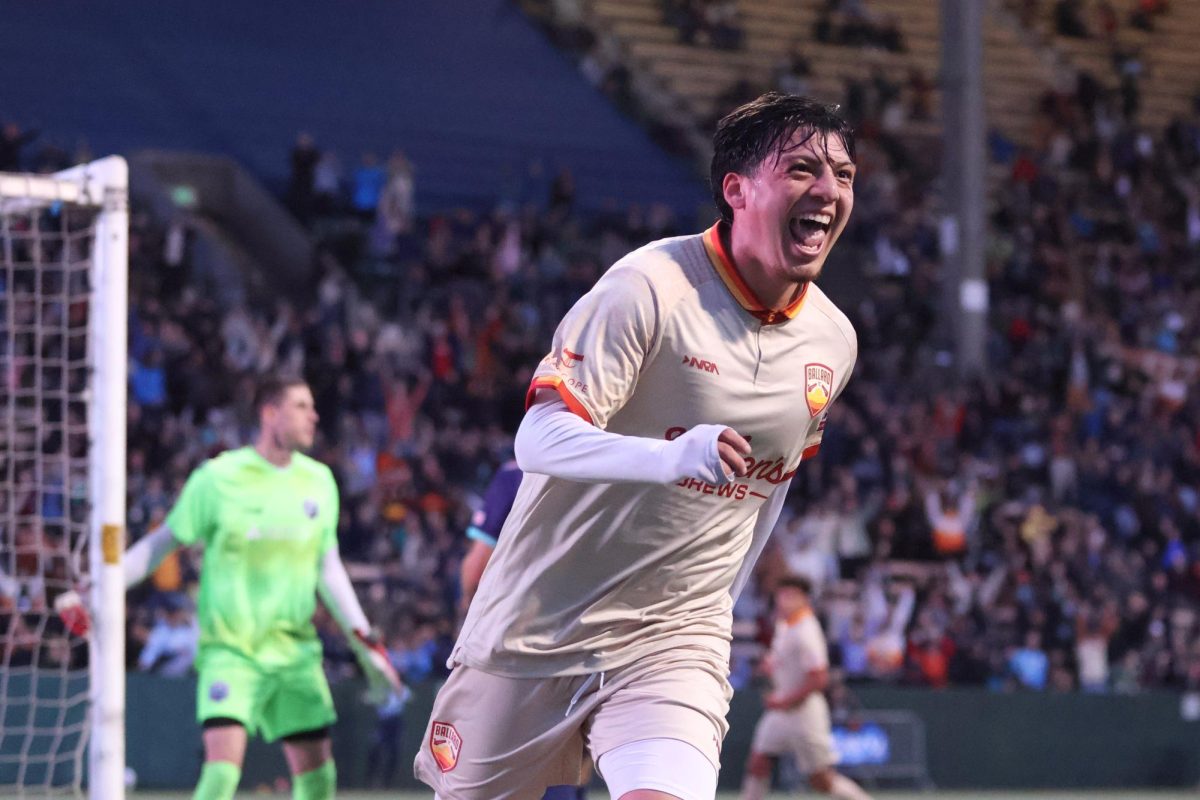
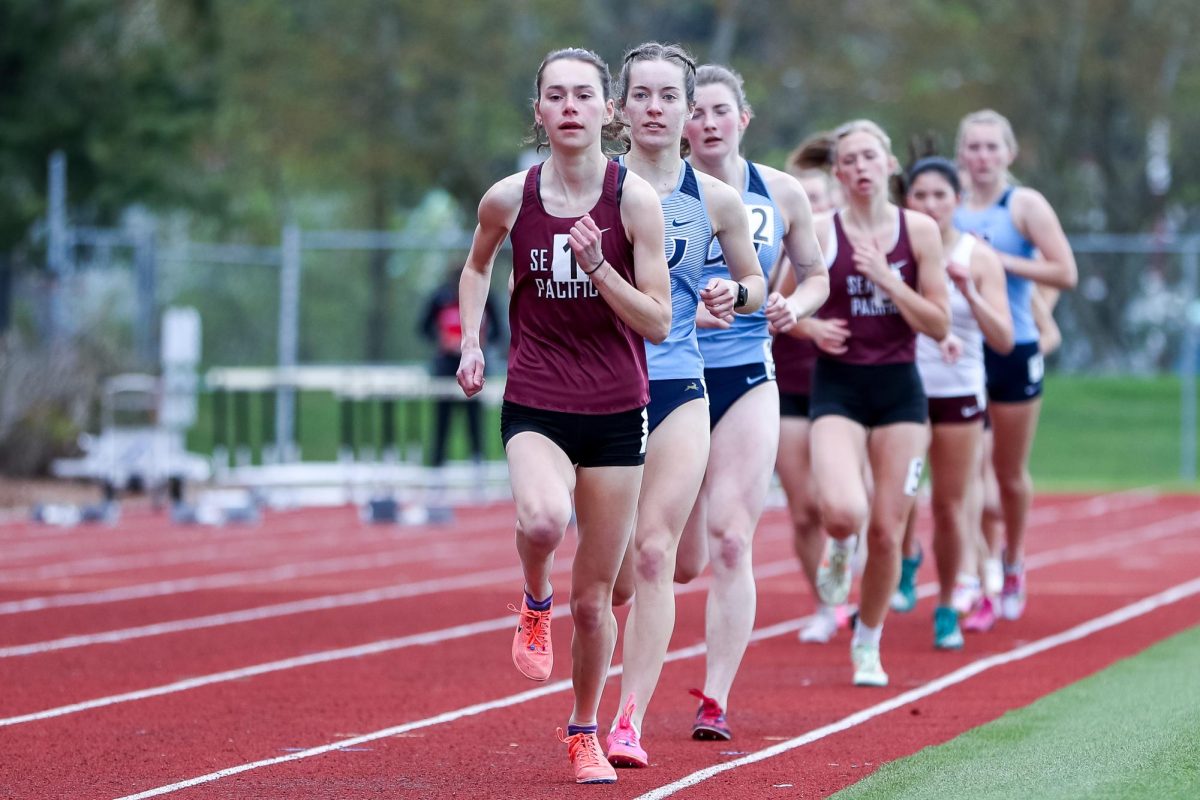
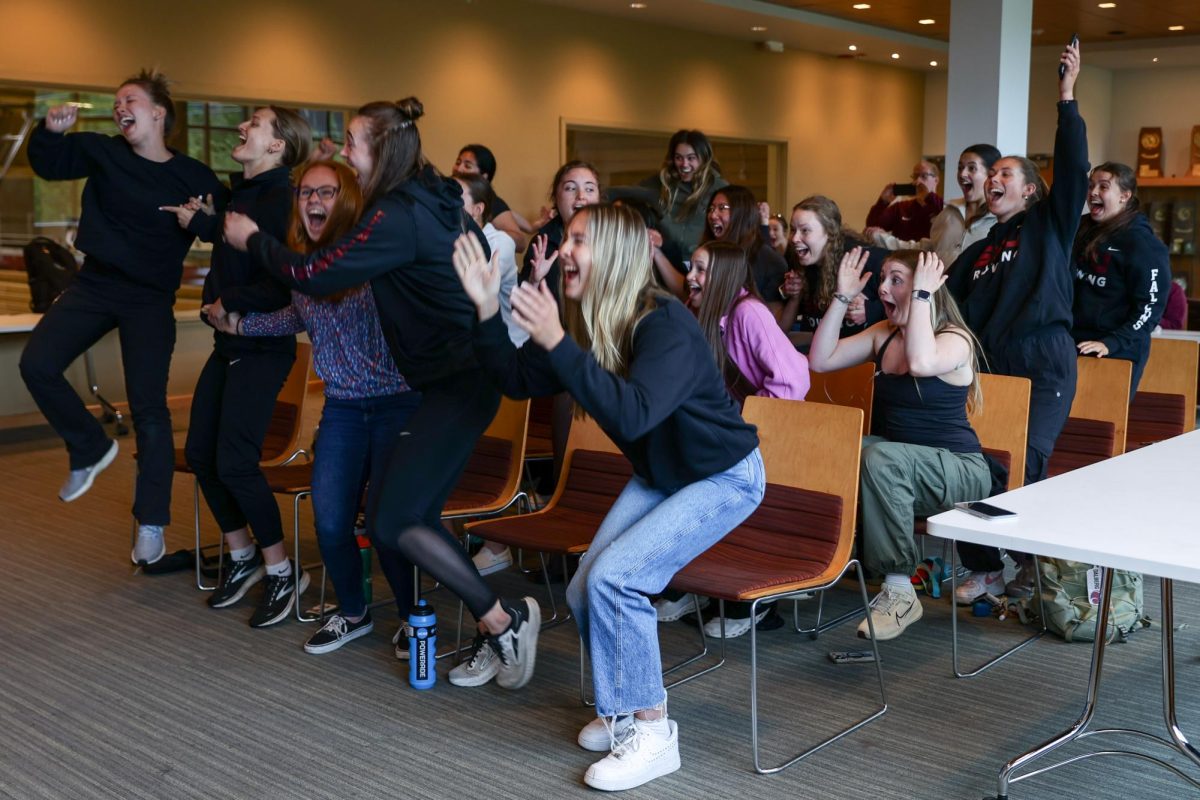
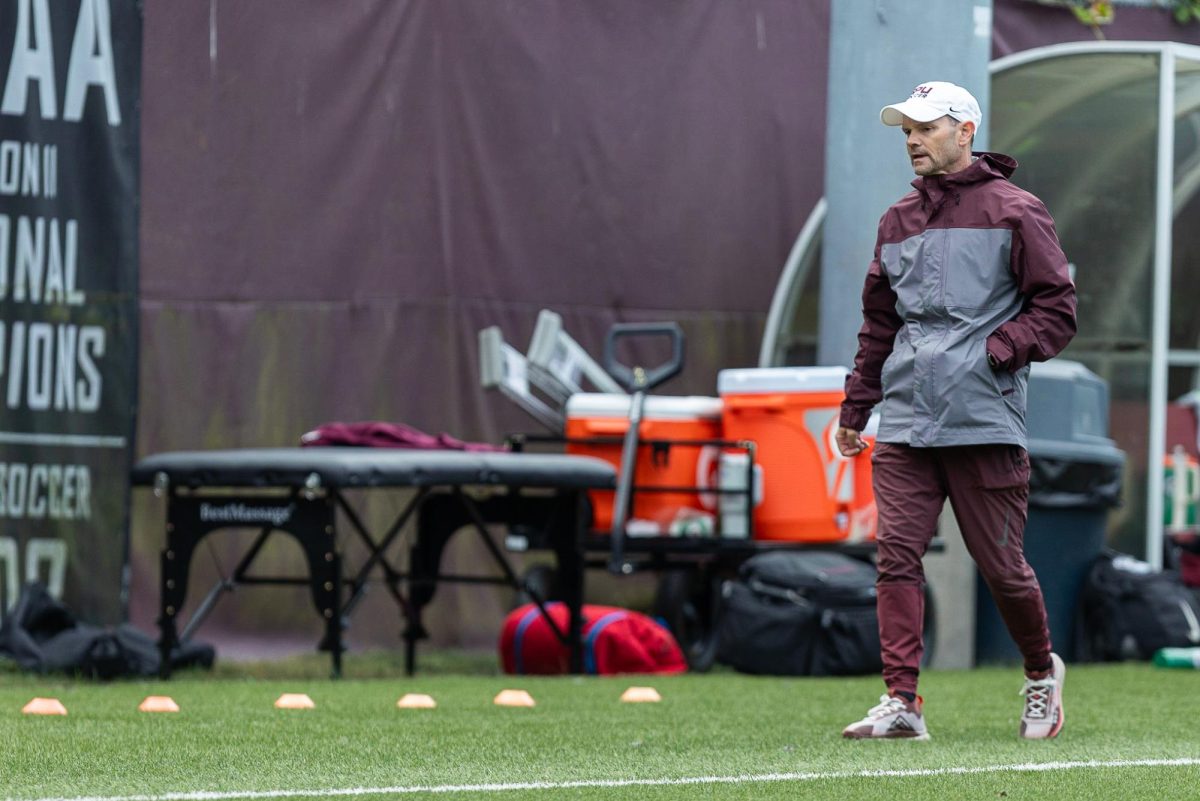
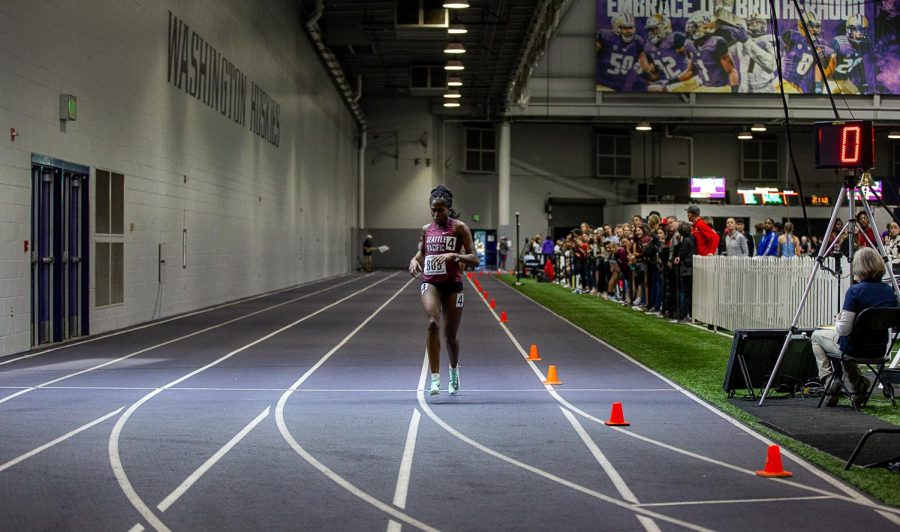




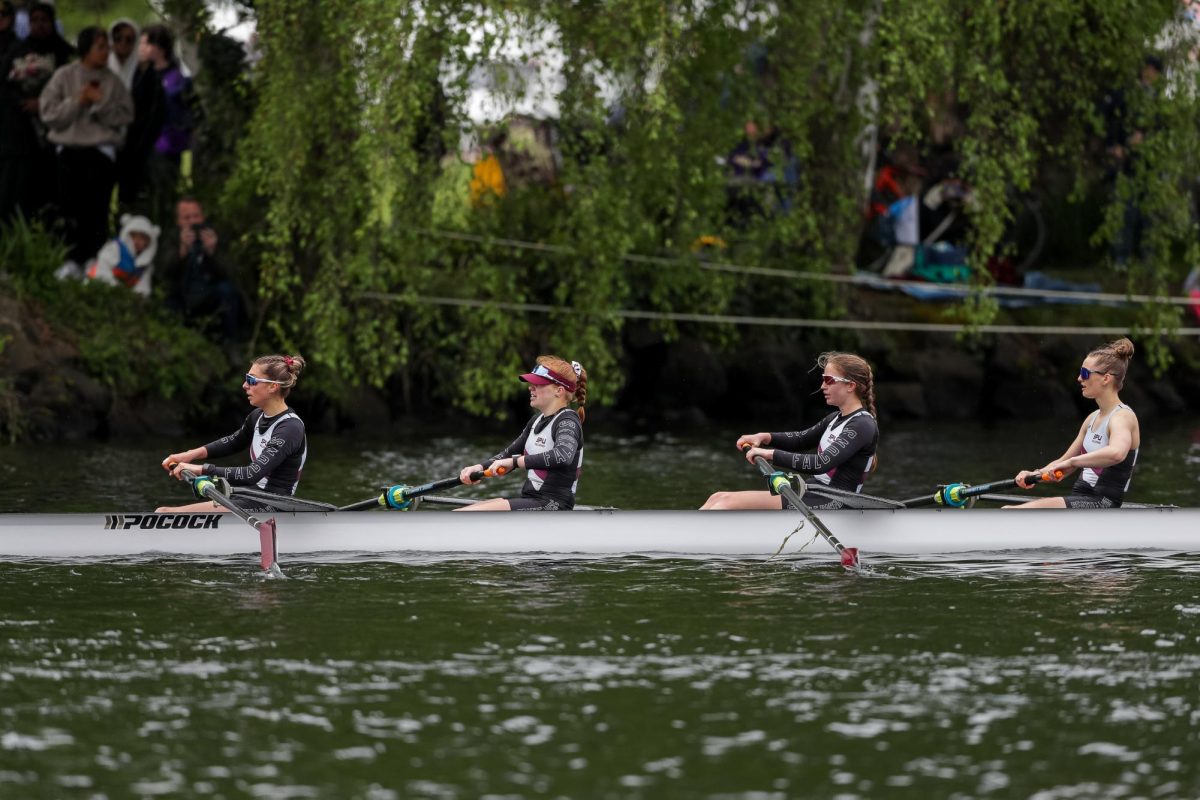
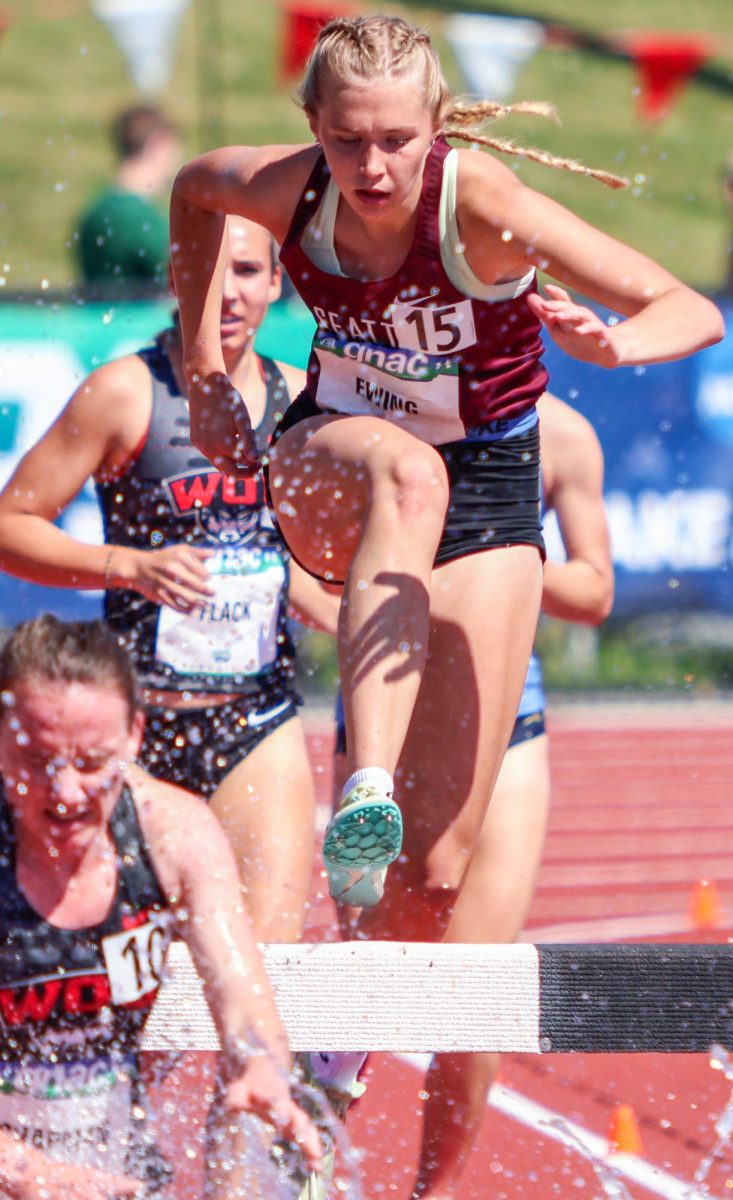




























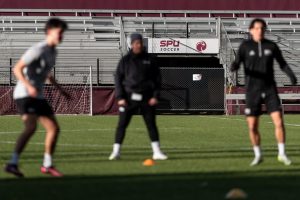

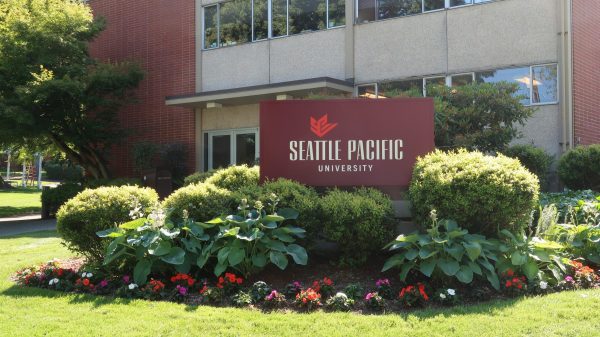





![Queer joy at SPU’s [Redacted] Fest](https://thefalcon.seapacmedia.com/wp-content/uploads/2024/05/04_14_23_9999_1-600x400.jpg)

